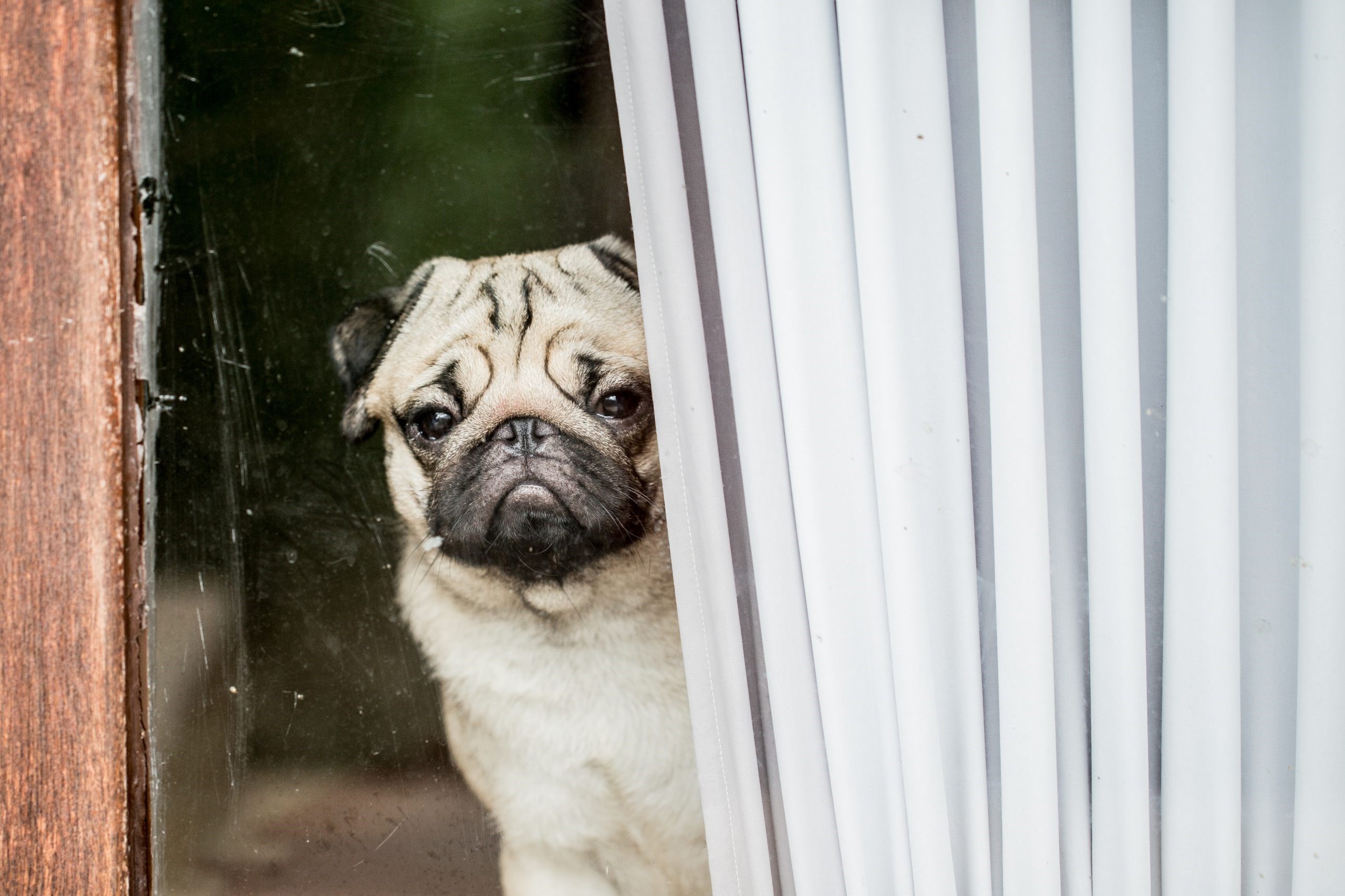Separation Anxiety
Have you been spending more time at home during the pandemic?
Is your dog getting used to having you home 24/7 these days?
What are you going to do when you go back to work?
Many pets are getting used to having their owners home much more often these days. Although the "new normal" will be here for a while, it is important to prepare your pets for life after COVID. If your pet is used to having you home all the time, it is going to be difficult for him to her to cope when you return to work or school on a regular basis. Even if that's a long time from now, the more you can prepare your pet now, the easier the transition will be in the future. What does this mean? Helping prevent separation anxiety is important, especially for all the newly acquired pets during the pandemic. If your new puppy has never been left home alone it is going to be tough for them to cope with it once the family returns to work and school.

How do you help prevent separation anxiety? Start now! Even if you work or study from home, pretend to "leave your home" for a few hours. Pick a spot in your home where your dog can't see or hear you for a few hours. Make sure they have a water bowl, a snack, and something to keep them occupied (e.g. peanut butter filled frozen kong) for that time. Even just a few hours a day now makes a world of difference when it comes time to leaving them alone for a whole work/school day in the future. If possible, make it as similar to your daily pre-COVID routine as possible. As well, give meals at approximately the same time each day and as close to pre-COVID times as possible.
Depending on your home set up, dogs can have their alone time in a crate or room. Some dogs also like the background noise of a TV or radio to keep them occupied as well.
Signs of separation anxiety include: excessive barking/howling, chewing of household items, excessive digging or scratching at doors/windows, attempting to escape the crate, excessive drooling or panting, and indoor "accidents" despite the pet being housetrained.
Together we can make it through the pandemic via mask-wearing, hand-washing, and social distancing!